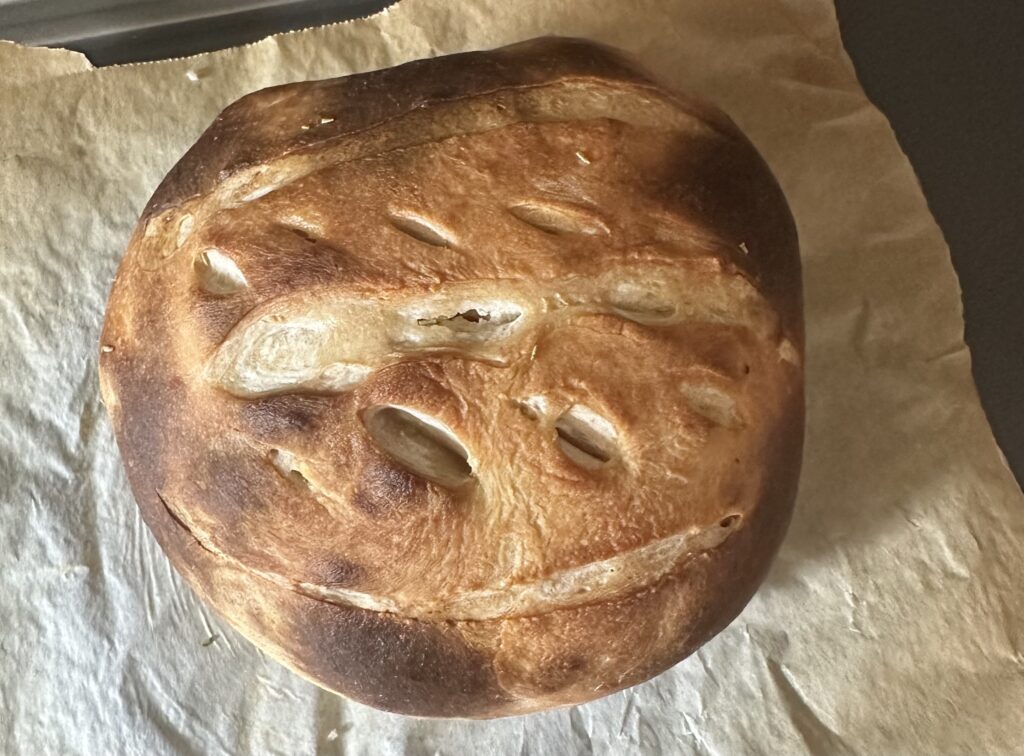
My sourdough progress this week was like no other. It began with my first time refrigerating my starter. Once your starter is developed enough to make bread, you can refrigerate it for multiple days without feeding, reducing the waste of new flour and water. What I did not realize was that you cannot create bread without allowing the starter to sit out and be fed for two days. This delayed my sourdough process a lot and made it more difficult to bake the bread during the week rather than the weekend as I had planned.
I also took a portion of the starter and tried making a second one that could be smaller and easier to manage. However, when I put both starters through the float test, the original starter passed and the new one did not. This was really exciting because my starters had yet to pass this test sufficiently enough to make good bread, and this signified that they could finally reach their full potential. This would fix the problem of the bread not rising properly that I faced a week prior.
Although I feel this loaf was very successful, I still made a few mistakes in the process. The first one was taking the starter out of the refrigerator too late which delayed my plan. The other big mistake I made was leaving the dough to rest overnight before shaping it, which could have affected the rising and cooking of the bread. You can find a description of this process in the recipe I used here. Another problem I have continuously faced throughout the semester is not having a kitchen scale and a Dutch oven pot. These kitchen appliances are not essential, but extremely helpful in the sourdough-making process, and I wish I had known that before beginning.
The process of making the dough was tedious and lengthy. It takes around 48 hours before having a cooked loaf, involving several rounds of allowing the dough to rise and folding the dough with a specific technique. I did the steps slowly throughout the week when I found time and did not follow them as well as I could have if I had done it on the weekend. This may have affected the bread in some ways, but it rose enough and the bread turned out delicious.